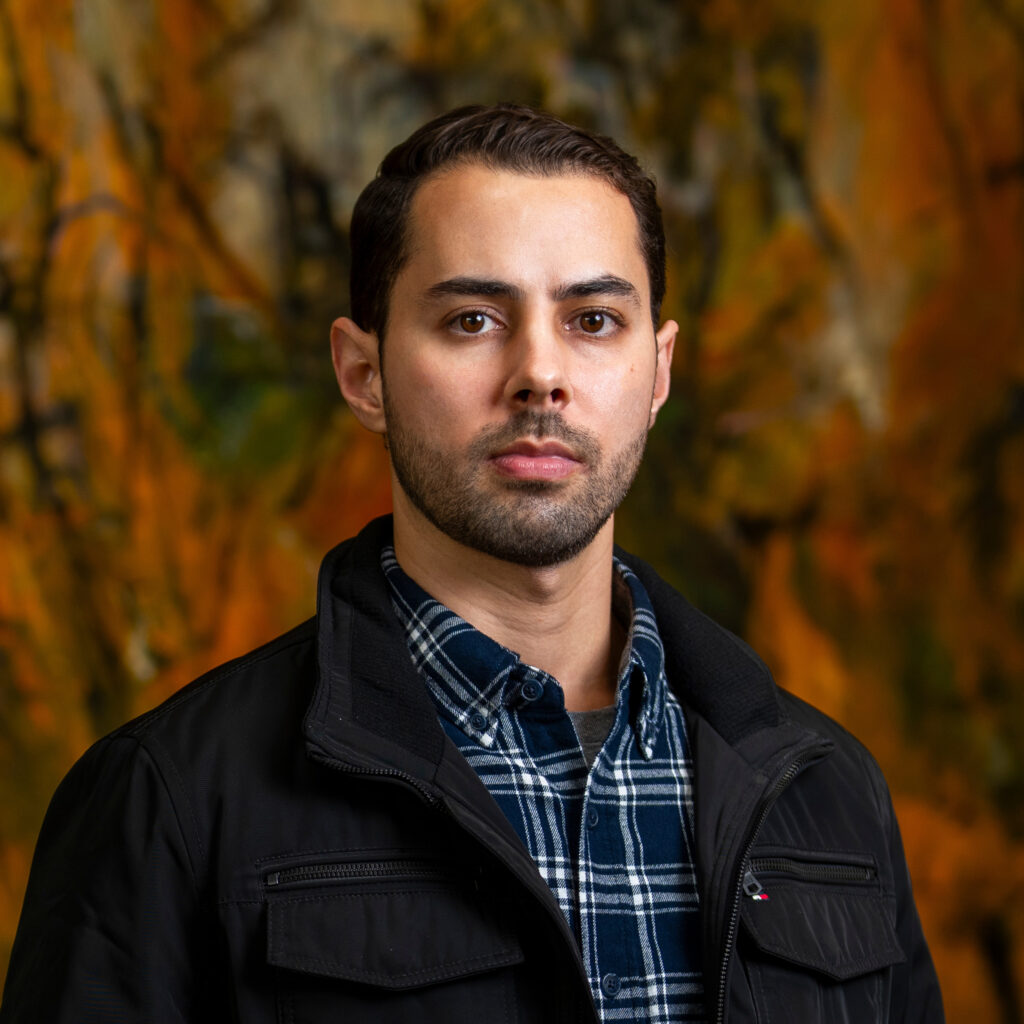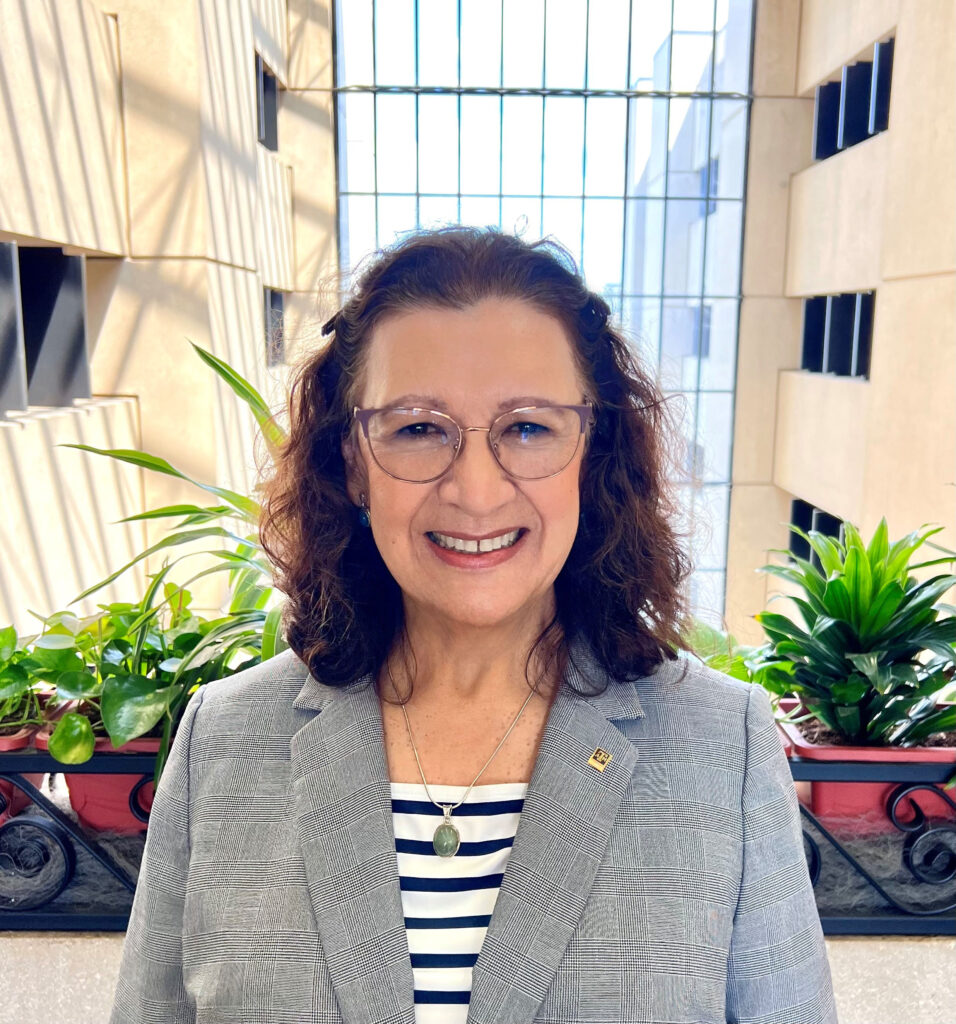
Zach Adelman
Research in the Zach Adelman, Ph.D. lab focuses on the genetics of the mosquito Aedes aegypti and related Aedes species. In very broad terms, we seek to understand how these mosquitoes are able to do all of the things they do to survive and serve as such good vectors of viral pathogens, and on using that knowledge to interrupt the transmission of these disease-causing viruses. A unifying theme of his research program is the use of reverse genetic tools such as CRISPR/Cas9 to query a range of important physiological systems in Ae. aegypti. In addition to gene editing, members of my lab routinely use transcriptomics, proteomics, bioinformatics, virological, entomological and traditional molecular biological techniques to address critical questions in vector biology.

Julio Bernal
Julio Bernal, Ph.D. focuses on ecology of insect natural enemies and plant defenses. He has hosted six undergraduate student researchers, with whom he co-authored at least five papers. Student researchers would lead research projects focused on effects of plant herbivore defenses on a variety of insects.

Henry Fadamiro
Henry Fadamiro, Ph.D focuses on the fundamental and applied aspects of insect behavior, chemical ecology, neurobiology, and pest management. His laboratory employs a multidisciplinary approach to tackle fundamental questions related to insect neurobiology and mechanisms of plant-insects and tritrophic interactions and their applications in developing novel and environmentally friendly pest management strategies against insect pests. An ongoing project in his lab focuses on understanding of how complex odor blends are processed in the insect brain, using parasitic wasps (parasitoids) as research models. Another research project aims to better understand the molecular and biochemical mechanisms by which beneficial microorganisms, such as plant growth-promoting rhizobacteria (PGPR), promote plant growth and enhance plant defenses against insect pests and pathogens. His research has been funded by various external funding agencies including National Science Foundation (NSF), United States Department of Agriculture (USDA), Environmental Protection Agency (EPA), Foundations, and the Agrochemical Industry. Student researchers will work on research projects focused on plant-insect interactions, integrated pest management (IPM), and biological control.

Gabriel Hamer
Research in the Gabriel Hamer, Ph.D. lab broadly investigates the ecology of infectious diseases of humans, wild animals, and domestic animals, with particular attention to those transmitted by mosquitoes, ticks, and kissing bugs. His program is funded by several sponsors including NIH, CDC, and DHS. Research in the Hamer Lab have focused primarily on vector-host interactions that lead to parasite amplification and increased disease risk. We utilize multidisciplinary tools to studying these complex disease systems, including molecular biology, landscape epidemiology, eco-immunology, and ecological modeling. A goal of our research is to elucidate mechanisms of transmission across space and time that facilitate ecological management of diseases with effective intervention and preventative strategies.

Anjel Helms
Research in the Angel Helms, Ph.D. lab focuses on the chemical ecology of plant-insect and predator-prey interactions. She has mentored nine undergraduate researchers and co-authored three papers with undergraduates. Five students have presented their research at local and national meetings, with two winning awards for their presentations. Research projects would focus on chemically mediated interactions among plants, herbivores, and natural enemies.

Phillip Kaufman
Phillip Kaufman, PhD, is a professor in the Department of Entomology at Texas A&M University. His research program focuses on the development of new pest management tools for livestock and companion animal systems. Beef cattle, dairy cattle and horses are the predominant livestock in Texas and are one focus of this program; while investigations on improvement for ectoparasite management on companion animals and wildlife are the second focus. Insecticide resistance and control failures are commonplace for many fly and tick pests; therefore, innovative systems are needed to assist in their management. However, to successfully manage these pests, studies investigating their biology and ecology are needed. The role that biological control can play in assisting with pest control is another research avenue. Recent projects in the laboratory include various ticks, stable flies, lesser mealworms, and house flies. We study these organisms from the genetic level up through the living organism, both in the laboratory and in the field.

Tereza Magalhaes
Research in Tereza Magalhaes’ public health entomology lab focuses on diseases caused by viruses transmitted by mosquitoes that currently represent a health threat in numerous countries worldwide, including the U.S., as well as those that have the potential to become future threats. Several types of studies are carried out in Magalhaes’ lab, and these include investigations on molecular aspects of mosquito-virus interactions and how vertebrate host factors can affect virus transmission by mosquitoes, as well as epidemiology work with human populations affected by these diseases. Prior to joining Texas A&M, Magalhaes has worked with and mentored several undergraduate students, and as a new faculty member in the Department of Entomology, she is looking forward to continuing to work with and providing training opportunities for students.

Raul Medina
Research in the Raul Medina, Ph.D. lab focuses on evolutionary ecology and agroecosystems. He has hosted 21 undergraduate researchers, with whom he co-authored four peer-reviewed publications, and except for two, all presented their research at the Ecological Society of America or at the Entomological Society of America annual meetings. One of them won 1st prize award for best undergraduate presentation.

Erick Motta
Research in the Erick Motta, Ph.D. lab focuses on the microbial ecology of insect-microbiome interactions, particularly using the gut microbiota of the honey bee, Apis mellifera, as an experimental system. We explore the processes governing the assembly of specialized gut communities and their impact on host biology. Our projects encompass basic and applied research, spanning microbiology, molecular biology, bioinformatics, and chemistry. We aim to understand: 1- The effects of agrochemicals and plant toxins on gut microbial communities and their consequences for host fitness; 2- The ability of gut microbial communities to modulate the host immune system and vice versa; 3- The contributions of both host and microbiota to detoxification processes; and 4- The use of defined communities of native bacteria to restore perturbed microbiotas and improve host health. Before joining TAMU, Dr. Motta mentored six undergraduates, including one REU student from UTRGV. Some of these mentees have presented their research at local meetings and co-authored peer-reviewed publications.

Patricia Pietrantonio
Patricia Pietrantonio, Ph.D. is a Sloan Foundation Mentor, and researches G protein coupled receptors in arthropods. She has mentored four NSF REU students, and published two papers with undergraduate coauthors, and submitted another; those students have presented papers at three national meetings. Students projects would focus on expression of GPCRs in insects (qPCR, localization with fluorescence probes), or perform functional fluorescence assays.

Juliana Rangel
Juliana Rangel, Ph.D. focuses on biotic and abiotic factors affecting honeybee colonies. She has mentored ca. 30 undergraduates, including several from underrepresented groups, five NSF REU, and four TAMU Undergraduate Scholars. Several have won 1st and 2nd places for their presentations at science conferences, including the Entomological Society of America annual meeting, and six have co-authored publications. Students would research the behavioral ecology of feral honeybees, and effects of pesticides and pathogens on colony health.

Cecilia Tamborindeguy
Research in the Cecilia Tamborindeguy, Ph.D. lab focuses on the transmission of plant pathogens by insects. She has mentored 20 undergraduate researchers, including four NSF REU students, who have presented research at five national and one international meeting, and won 1st- and 2nd-prize awards for best undergraduate presentations. Research projects would focus on the interaction among insects, pathogens and plants.

Aaron Tarone
Aaron Tarone, Ph.D. focuses on the biology of forensically important flies and Drosophila species. Past mentees have co-authored papers in various journals, and presented papers at the Entomological Society of America, American Academy of Forensic Sciences, and North American Forensic Entomology Association meetings. Student projects would address thermal biology, genome size, or forensics research.

Keyan Zhu-Salzman
Keyan Zhu Salzman, Ph.D. focuses on molecular insect-plant interactions. She has hosted approximately 2 undergraduate students yearly for the past several years, co-hosted an NSF REU student, and has one student co-authored publication. Available projects would focus on screening resistant cowpea lines for aphid resistance, including determination of relevant secondary metabolites, and effects of electron beam on psyllid vectors of plant diseases.